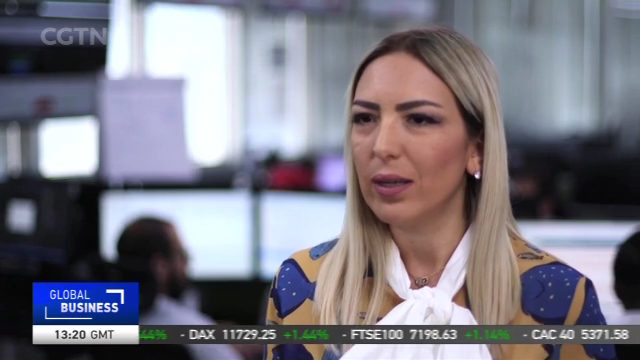
17:28, 20-Aug-2019
Cyprus-Forex: Will Brexit affect investment?
Updated
17:44, 20-Aug-2019

Foreign exchange has built a home in the tiny island state of Cyprus where tax incentives have lured dozens of the world's top companies to set up shop. But Cyprus was in an economic meltdown just a handful of years ago. Why didn't investors and companies shy away and how do companies foresee weathering Brexit? CGTN's Stephanie Freid has this report from Limassol, Cyprus.
Cyprus is synonymous with a laid-back lifestyle: sun, beach, sand, vacation.
But a few years ago, things weren't so relaxed. Financial crisis fueled by bank lending necessitated a bailout and tough austerity measures.
Ironically, at the same time, Forex companies doing business in Cyprus were thriving. Why would global investment firms set up shop in a country downgraded to "junk status"?
CARLA NEMR, TICKMILL BIZ DEVELOPMENT LIMASSOL, CYPRUS "Because we have the FCA regulation that is based in the UK, this gives strength and even more the trust for clients, investors."
Regulations protecting investors and significant tax breaks - 12.5% corporate tax versus the UK's 19% - make Cyprus an attractive incorporation address.
There are about a hundred international Forex companies operating out of Cyprus today.
But the boom is starting to bust - New EU regulations aimed at standardizing investments are pushing companies towards less regulated countries.
JOHN VICKERS, CHIEF EDITOR 'GOLD' NICOSIA CYPRUS "The big ones are staying, but they're only making maybe a third of the money they were making before."
And there is Brexit to consider.
VALERIJUS OVSIANKIKAS, CEO TICKMILL EUROPE "We have two licenses and two legal entities here in the UK and in Cyprus - we're well prepared for any case, any scenario of Brexit."
Standard and Poor ranks Cyprus as one of the top four economies vulnerable to Brexit trade effects. Stephanie Freid, CGTN, Limassol, Cyprus.
SITEMAP
Copyright © 2018 CGTN. Beijing ICP prepared NO.16065310-3
Copyright © 2018 CGTN. Beijing ICP prepared NO.16065310-3